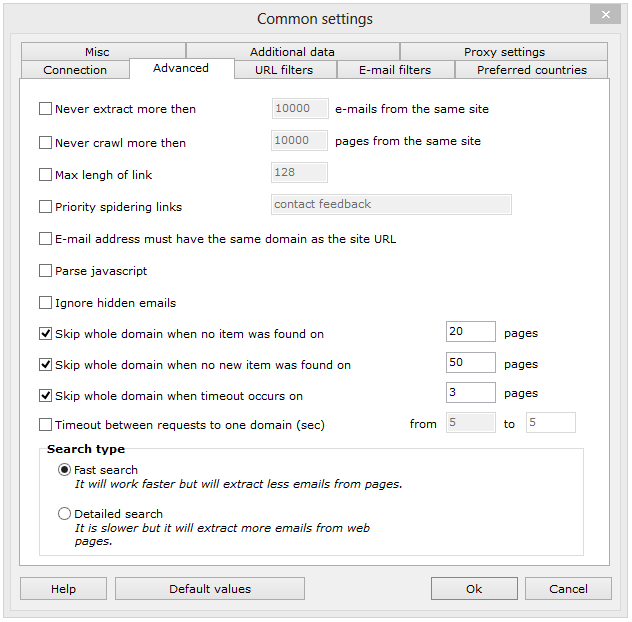Handy Tips For Deciding On An Email List Site
Handy Tips For Deciding On An Email List Site
Blog Article
What Should I Be Thinking About When Purchasing An Hematologist Email List?
It's crucial to think about a number of factors when purchasing the hematologist mailing list in order to ensure that the list you purchase is correct, in compliance with the law and applicable to the marketing objectives. The most important considerations are: 1. Data Accuracy & Quality
Source of Information Check that email list providers use reliable sources. For instance, you can confirm that they use professional directories (such as medical databases), or verified opt ins from doctors. The accuracy of the information collected will determine the quality and reliability of the list.
Verification and Updates: Request information about the data verification procedure. Email addresses that appear to be not active or not correct should be removed. It is essential to update the list on a regular basis, as healthcare professionals are able to change their positions or institutions.
Specialization and Segmentation: Ensure that the list is tailored to hematologists. It could be segmented further by subspecialties, for instance (e.g. pediatric oncology, hematology) or the location, the years of experience, or hospital affiliation. Segmented lists let you more effectively target your efforts.
2. Compliance with Legal Regulations
Data Privacy Laws – Ensure compliance with the data protection laws in place, including the General Data Protection Regulations (GDPR) for Europe, the California Consumer Privacy Acts (CCPA) for the U.S. and other applicable laws. This means email addresses have to be collected with proper consent.
CAN-SPAM Act: In the U.S., ensure the list of recipients is in compliance with the CANSPAM Act, which regulates commercial emails. Non-compliance may result in penalties and the flagging of your email as spam.
Opt-in Consent: Only add those Hematologists who have expressly consented to receive emails from other parties. Uninvited emailing to patients who haven't signed consent may result in poor engagement as well being a legal issue.
3. Provider Reputation
Examine the credibility of the provider. For a more reliable provider look up reviews and testimonials or case studies. A well-established company with a track record of delivering high-quality and compliant data is more likely.
Transparency. Choose a service who is transparent about how and where data is collected. It is best to avoid companies that don't provide clear information about methods used to collect data.
Customer Service: A reputable provider will provide excellent customer support. It is possible that you require assistance with technical issues, list modifications, or have questions regarding compliance. A strong customer support can make a big difference.
4. Cost as well as Return on Investment (ROI)
Pricing Model: Consider the pricing model, whether it is pay-per contact, flat-fee, or subscription-based. Be sure the price is in line with your potential return on investment, while balancing the quality of your list and quantity with your marketing budget.
Refund or Replacement Policy: A reliable company will offer an exchange or refund policy for invalid email addresses. Clarify this policy's terms before buying.
Value in comparison to price: Examine the features of the list (such as segmentation, and the accuracy guarantee offered by the service provider) with the price. The list that has the lowest cost may not be the most useful when its data quality is below the mark.
5. Use and ownership of data
Understanding the distinction between single use and multiple Use Understanding the rules of use is important. Certain providers might only permit you to use the list only for one email campaign, while others might offer full ownership and unlimited rights to use.
Exclusive vs. Shared Lists - Determine if this email list is solely yours or shared with other people. Exclusive lists are more likely to provide better engagement, as the contacts will be less likely to receive marketing messages from different sources.
6. Data Integration and Format
Compatibility of CRM or Email tools: Check if the list can easily be integrated into your CRM platform or email marketing platforms. It is important that the list be available in standard formats, such as CSV and Excel, to facilitate integration.
Easy to Use: Check how simple the list can be managed. Lists which are difficult to manage and segment can hinder the effectiveness of marketing campaigns.
7. Ethical Considerations
Relevance to Hematologists Be sure your outreach emails are appropriate to doctors. Not sending them content that does not match their expertise might result in poor engagement, and can negatively impact your reputation.
Avoid Spam Practices. Don't overburden recipients with a lot of messages. Inadequately sending emails can result in complaints about spam and damage your reputation as a sender.
The purchasing of a hematologist's list can be a powerful tool for targeted marketing. But, it should be done with care. Be sure to consider the quality of data and the compliance with privacy laws, and the credibility of the service provider to ensure that you get an accurate, valuable, and effective list. Segmentation, legal compliance, as well as ethical marketing are all essential aspects to be considered in order to maximize your return on investment. View the top hematologists email list for blog guide.
What Should I Think About Prior To Buying A Data Appending System?
Data appending is a method which adds missing or extra data to your database. This can be done by adding email addresses, phone numbers, demographic details, etc. Data appending is the process of enriching databases by adding new or missing information, like phone numbers, email addresses or demographics. Here are the most important considerations to consider when buying data appending services: 1. Data accuracy and quality
Source of data: Make sure whether the appending service provider uses reliable, high-quality sources like verified database or public records. Trustworthy providers collect information from reliable sources to make sure that the information appended is correct and pertinent.
Verification Process: Determine if the provider has a thorough procedure for validating and verifying the data. This assures that the information is accurate, up-to-date and relevant to your requirements and applicable. The provider should offer regular update and data cleansing processes.
Match Rates: Different providers will have varying matching rates. It's a proportion of your records that could be improved by additional data. You should aim for a balance with high accuracy in data as well as high match rate.
Customization When you have specific requirements, ensure that the service provider offers customized appsend services for data. This can include appending various kinds of data such as contact details, behavioral information, or demographic and firmographic data.
2. Data Security and Privacy
Compliance with Regulations Data appending is the handling of personal information. Therefore, it is crucial that this service is compliant with data protection laws such as General Data Protection Regulations (GDPR) as well as California Consumer Privacy Acts (CCPA) and other privacy laws. The data appended must be legally collected and processed in order to avoid penalties and harm to reputation.
Consent Management - Make sure that the information is provided by individuals that have consented explicitly to the sharing of their personal data. Don't use data based on illegal or questionable methods.
Data Security: Ensure your provider has implemented rigorous security measures for your database, and the data to be added. This includes encryption as well as secure data transmission protocols and access limitations.
3. Provider Reputation
A Reputable Vendor - Select an organization with an excellent reputation for offering precise data appending services that comply with. Look through reviews, testimonials, or case studies to assess their track record. A well-established provider is more likely to offer high-quality services and ensure compliance with law.
Industry Specialization: Certain companies specialize in particular industries such as healthcare and finance. If you are in a specific area, look for a service provider with experience and knowledge in your field. They could provide more customized solutions that meet the specific requirements of your business.
4. Cost and return on investment (ROI)
Pricing Models: Appending services for data provide a range of pricing models. They offer flat rates for bulk updates or per-record fees. Be sure to understand the structure and how it is aligned to your budget. Beware of cheap alternatives that could have weak data.
Calculate the possible ROI of your investment by including data. A reliable service should help you increase engagement, boost conversion rates and enhance the overall effectiveness of your marketing. Compare the price of the service with the expected benefits you can expect from having better, more actionable data.
5. Data Types with Appending Options
Types: Determine the types of data that you want to be added to your databases. Common types include:
Email addresses are crucial for email marketing campaigns.
The importance of phone numbers is in sales outreach, customer service and many other types of services.
Demographic data are useful for marketing segmentation and targetting.
Firmographic data is vital for B2B businesses that target businesses based on their revenue size, employees or industry.
Social Media Profiles Certain providers offer the addition of social media profiles to digital and online marketing efforts.
6. Data Format and Integration
Compatibility: Ensure that the data that you are adding is supplied in a format compatible that is compatible with your Customer Relationship Management (CRM) software or Marketing Automation Software or any other tool you use. The most common formats are CSV, Excel, or API integration. This should allow for easy data import and use.
Data Cleansing and Enrichment Services: In addition to the appending process the best provider will also provide data cleansing services. This includes correcting incorrect information as well as removing redundant records and erasing outdated records. Data enrichment doesn't just provide new information it also improves the quality.
7. Ethical considerations
Transparency. Service providers must be open and transparent about how and where the data is collected. The most ethical data appending service will be able to enforce strict rules regarding data sourcing and usage, ensuring that the information is collected using legally-approved and transparent methods.
Effect on Engagement: Be mindful that appending data about contacts such as email addresses or phone numbers shouldn't cause spammy or intrusive practices. Utilize the added information in a responsible way. Be sure to adhere to the best practices, such as giving opt-outs to your emails and ensuring privacy.
You can also read our conclusion.
When purchasing data appending services be sure to consider quality of the data, legal compliance, and the reputation of the provider. Prioritize services that offer reliable, secure data that is compliant with privacy regulations like GDPR as well as CCPA. Think about the long-term ROI from investing in precise, enhanced data. By choosing the right provider and focusing on ethical practices the process of data appending can greatly improve your marketing strategies and overall business performance. Read the top data appending services for site advice.